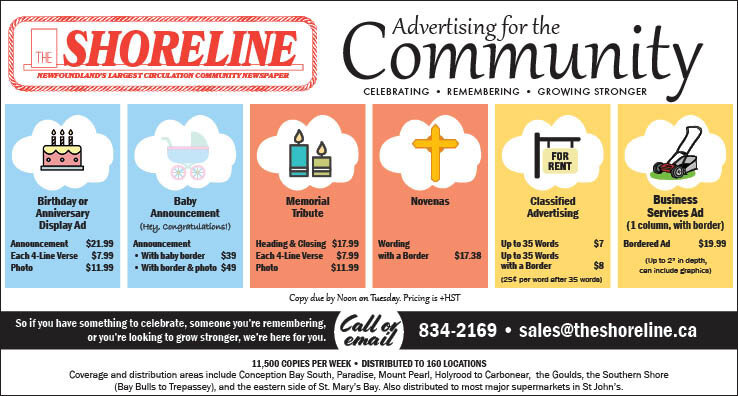By Mark Squibb/December 16, 2021
The Town of Bay Bulls has approved a new budget and tax structure for 2022, though not unanimously.
Mayor Neil O’Brien introduced the budget that is balanced at $3.4 million. Residential property tax remains unchanged at 4.5 mils, the commercial property tax remains at 14.75 mils. The minimum property tax is $400, minimum vacant land tax is $200, and the direct sellers’ tax is $250. All those fees are the same as this past year. The minimum business tax will be $450, up $50 from this year.
An eight percent discount will be provided to residents who pay taxes in full before the due date of June 30, 2022.
Mayor O’Brien asked Town manager Jennifer Aspell to give a ‘Reader’s Digest’ version of the budget for the benefit of residents tuning in.
“So, there’s a number of good things to say about this budget,” said Aspell. “There’s no mil rate increases at all. Across the board now, some fees have increased. So, no mil rate increase does not mean that people do not see an increase to their property tax bill in 2022. It really depends on their individual property assessment.”
She noted that for those constructing a commercial building, the town will charge an application fee once someone applies, but there will be no additional permit fee.
One of the big questions ahead of the budget was how a newly minted council would handle the controversial question of the ‘craft tax.’
In 2020, the former council increased the home-based business tax from $375 to $450, and hit a number of business owners who had previously not been taxed.
Some of those businesses belonged to folks knitting crafts at home.
The craft tax, as it became known, hit a nerve with crafters and non-crafters alike, some of whom came out to the council chambers to argue the tax with council face-to-face. Their arguments that selling crafts on Facebook did not make them businesspeople, along with admonitions that council best mind its own business, were of no avail. The tax remained.
It still remains, with some revisions however.
“There have been changes to the home-based business tax structure,” explained Aspell. “There are now three categories of home businesses.”
The first is a light-industry home based business tax and will include handmade articles such as clothing and crafts. Those folks will be taxed at $150 annually. Next up is medium industry home-based businesses, which includes studios, salons, spas, photography, private day care, and pet grooming. Folks operating those business out of their home will be taxed $300. A final category targets larger operations that don’t fit in either of the first two categories. Those folks will be taxed $450 annually.
The new budget also introduced a general retail category for storefronts such as clothing stores, sporting goods, craft shops, and gift shops. Those will be levied a business tax at 5 mils. The commercial property tax for those stores will remain the same.
One fly in the ointment was the provincial government’s decision to deny council’s request to be exempt from Own Source Revenue requirements.
Based on the 2016 census, the provincial government requires the town collect an average of $1,047 in taxes from each person in town to meet the provincial government’s quota.
“So, overall, it’s a good news budget, for sure,” said Aspell. “We would certainly like to reduce the mil rate across the board, but we had requested, as most people know, an exemption to our own source revenue accountability requirement to have our per capita rate reduced so that we could reduce the mil rate and that request was not granted. So, we have worked around the budget as much as possible to make sure that the implication is minimal, if at all. I don’t think there were any negative implications here at all.”
When it came time to vote on the budget, one councilor made it clear that he could not support it for a very specific reason.
“One thing is the point about the craft tax,” said councilor Jason Sullivan. “Even though it’s reduced to 150 bucks, I still have a struggle taxing anyone doing crafts at their kitchen table.”
Sullivan said he made a promise to residents that he would not support a ‘craft tax,’ and for that reason he would not support the budget.
Following some discussion, councilor Shannon O’ Driscoll made it a point to clarify that the businesses was not a ‘craft tax.’
“The home-based business tax is what we are talking about, and people refer to it as a ‘craft tax,’” said O’Driscoll. “I just wanted to clarify that there is no actual ‘craft tax’ as such. It is a home-based business tax, and we wanted to be fair, across the board, to all home-based businesses.”
With the exception of Sullivan, council voted in favour of both the budget and the tax structure.

